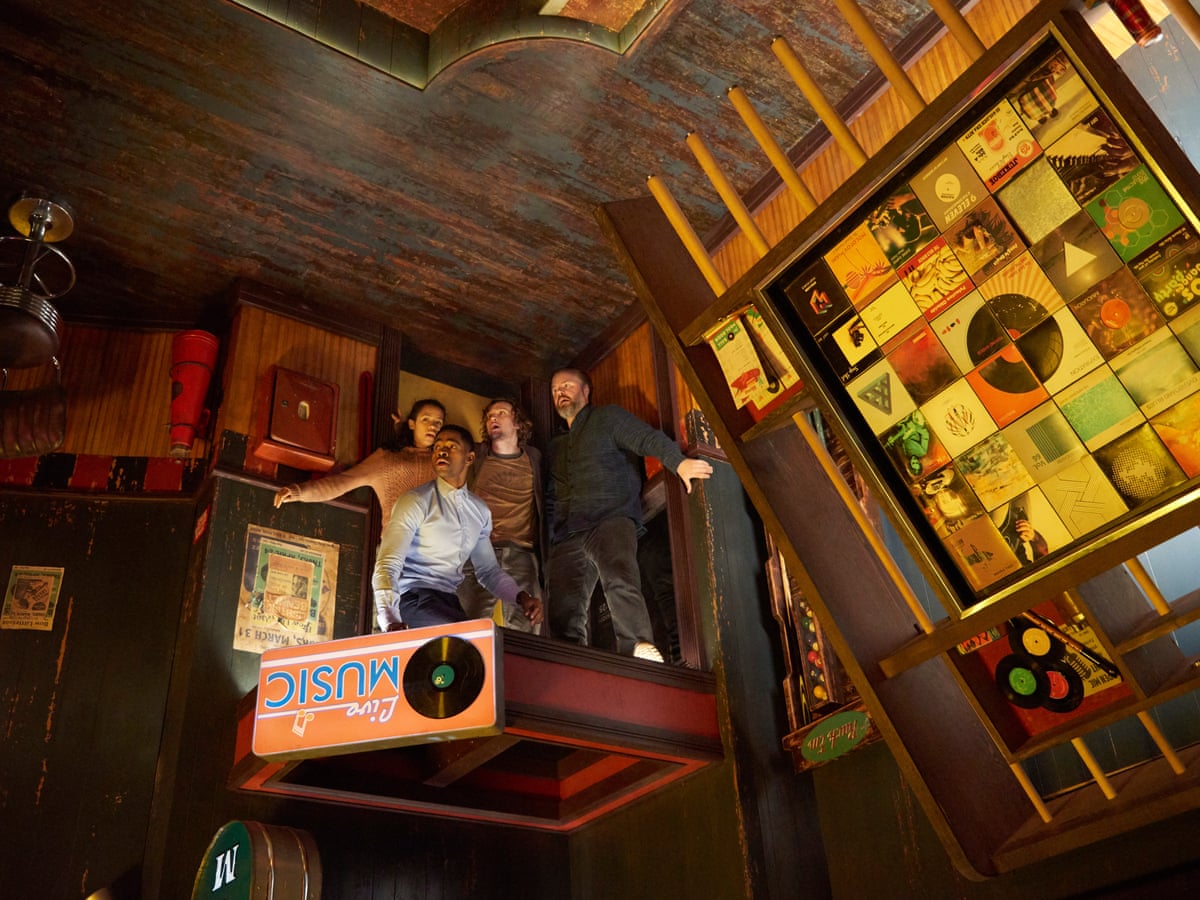Explore the Best Escape Room in Minneapolis-- Book Your Experience
Explore the Best Escape Room in Minneapolis-- Book Your Experience
Blog Article
Group Approaches: Just How to Collaborate Efficiently in a Retreat Space
Navigating the complexities of a getaway space requires greater than simple enthusiasm; it requires a well-coordinated strategy grounded in clear communication, tactical role assignments, and adept time monitoring. Teams must proactively pay attention to every member's understandings, appoint roles that straighten with private toughness, and preserve regular check-ins to ensure emphasis and stop redundancy. By promoting an environment that values communication and versatility, teams can considerably enhance their effectiveness and success prices. The nuances of these strategies can change the experience, but just how precisely can they be implemented to take full advantage of the potential for success?
Establish Clear Communication

To help with clear interaction, it is vital to assign a main point of get in touch with for information circulation. This role includes summing up searchings for and proposed approaches to guarantee every person stays on the exact same page. Additionally, embracing an organized method to conversations can avoid disorderly exchanges. For instance, quick, concentrated updates from each team participant can keep the team informed without frustrating them with information.

Appoint Functions Tactically
While clear communication establishes the foundation for efficient synergy, designating duties tactically ensures that each staff member's staminas are made use of efficiently. In an escape space scenario, the time-sensitive and intricate nature of challenges demands an efficient approach to job delegation. By identifying and leveraging specific proficiencies, groups can optimize their analytic capacities and boost general performance.
A person with an eager eye for detail might succeed in locating hidden objects, while a rational thinker might be much better fit to addressing problems. This duty often requires strong organizational and interpersonal skills.
Second, guarantee that functions are versatile and versatile. As new difficulties arise, the team should be able to pivot, reallocating tasks as required. This adaptability helps maintain momentum and prevents traffic jams that can take place as a result of stiff function projects.
Eventually, a calculated technique to function project not only optimizes the staminas of each employee but additionally cultivates a natural atmosphere, driving the team in the direction of an effective getaway.
Utilize Diverse Abilities
Acknowledging and utilizing the varied abilities within your team can dramatically raise your performance in a retreat room. Each employee brings unique staminas to the table, and effectively leveraging these capacities can speed up analytic and improve total effectiveness. As an example, an employee with solid analytical abilities might stand out at figuring out intricate codes or patterns, while another with eager empirical capabilities might rapidly detect covert ideas that others may forget.
Encourage team members to voice their understandings and ideas quickly, making sure that all prospective options are thought about. Furthermore, designating tasks that align with each member's strengths can prevent traffic jams and make certain that progression is continual.
In addition, variety in abilities typically equates to diversity in thinking designs, which is invaluable in a retreat area setting. While some challenges may call for sensible thinking and precision, others might gain from creative and association of my blog ideas. By recognizing and leveraging this diversity, groups can attend to a wider range of obstacles better, thus increasing their chances of an effective getaway.
Manage Time Efficiently

First, allot first mins for a fast study of the space. Determine noticeable problems and split jobs based on employee' strengths, guaranteeing that nobody is idle. Set inner time checkpoints to review progression occasionally; for example, goal to try here have half the challenges resolved by the mid-point of the game. This practice can help maintain the group concentrated and protect against time from escaping unnoticed.
Furthermore, avoid one-track mind. If a problem is taking also long, turn team participants this link or carry on to one more challenge, returning later on with fresh viewpoints. Communication is vital-- keep everyone upgraded on fixed challenges and staying tasks to stay clear of repetitive efforts.
Lastly, make use of any type of hints or hints moderately however strategically - best escape room. Recognizing when to ask for aid can conserve useful time. By sticking to these time administration principles, groups can dramatically improve their opportunities of an effective and pleasurable retreat room experience
Debrief and Show
Reflection is an important facet of team growth and enhancement in the context of retreat rooms. When the obstacle is completed, whether effectively or otherwise, it is vital for the team to participate in an organized debriefing session. This process enables employee to evaluate their efficiency, identify strengths, and identify locations for improvement.
Begin the debrief by reviewing what worked out. Highlight particular instances of reliable communication, problem-solving, and partnership. Identifying these positive behaviors strengthens them and urges their rep in future challenges.
Go over minutes of complication, miscommunication, or inadequate approaches. Urge an open and constructive discussion where group participants can share their viewpoints without anxiety of objection.
Verdict
Finally, effective cooperation in a retreat room is based upon clear interaction, critical duty jobs, the reliable application of varied abilities, and proficient time management. Routine check-ins and structured debriefings are necessary for keeping emphasis and cultivating continual renovation. By developing a cohesive and flexible group atmosphere, the probability of successfully solving challenges and achieving the goal of leaving the room is considerably enhanced. This approach not only guarantees success but also advertises collective development and understanding.
Report this page